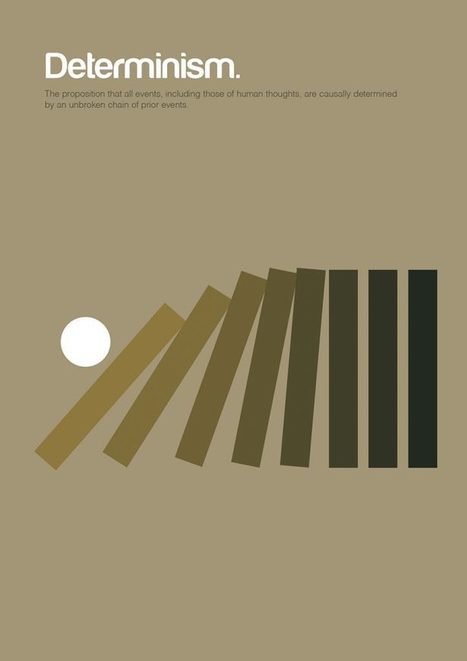Sommes-nous libres ou déterminés ?
Liberté, responsabilité et déterminisme(s)
Le déterminisme (en philosophie morale) consiste à dire que des lois extérieures déterminent l’individu, ses actes et ses pensées.
Il s’agit par exemple des lois de la nature (nos actes seraient déterminés biologiquement par notre ADN par exemple) et causalités (modèle « stimulus-réponse » entre autres).
Le destin ou la prédestination (« tout est écrit ») incarnent également une forme de déterminisme, généralement lié à des croyances métaphysiques (instances qui transcendent la physique).
Learn more / En savoir plus / Mehr erfahren:
https://www.scoop.it/t/21st-century-learning-and-teaching/?&tag=Frank+SONNENBERG
http://www.scoop.it/t/21st-century-learning-and-teaching/?&tag=Character
http://www.scoop.it/t/21st-century-learning-and-teaching/?q=ethics
https://www.scoop.it/t/21st-century-learning-and-teaching/?tag=Values
http://www.scoop.it/t/21st-century-learning-and-teaching/?tag=Growth+Mindset



 Your new post is loading...
Your new post is loading...












regards